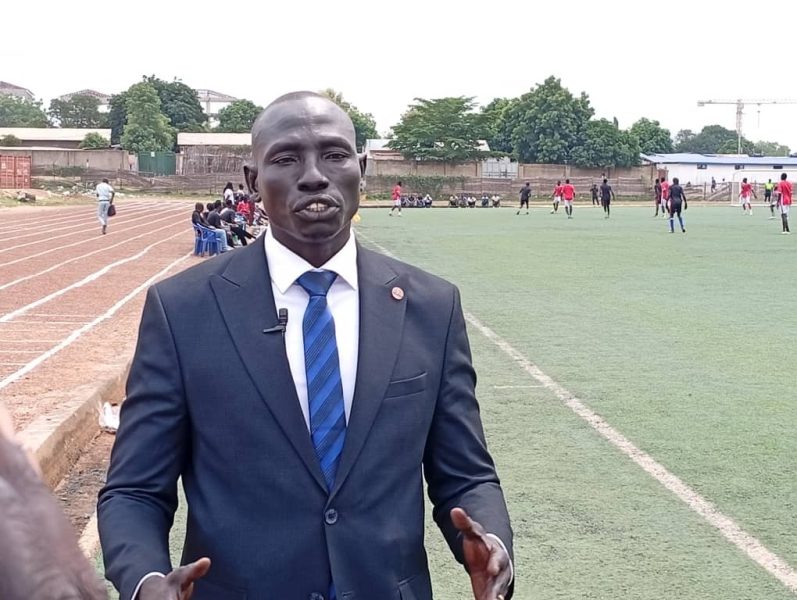
South Sudan, a nation struggling with its own internal political turmoil and economic instability, is currently hosting over 600,000 registered refugees, a number that officials say has overwhelmed the country’s resources.
This situation was brought to light by Yawusa Daud Kintha, Deputy Director for Protection and Refugee Welfare at the South Sudan Commission for Refugee Affairs, during an athletic event organized to commemorate World Refugee Day.
The event brought together athletes from both the host community and refugees for a friendly competition in a spirit of unity and celebration.
While the games brought smiles and a feeling of togetherness to the refugees, they also highlighted a serious crisis: the increasing number of people seeking safety in the country.
“We, as South Sudanese we need to know this country is hosting more than 600,000 registered refugees,” he said. “We have a lot of challenges that need both the government and the partners to team up.”
One major challenge, Yaud said, is the lack of funding for youth engagement activities.
He explained that refugees are struggling due to aid cuts from the United States, which have significantly impacted the operations of organizations dedicated to assisting them.
He pointed out that many refugees are facing difficulties accessing education and are experiencing food shortages as a result of ration cuts in the camps.
“Coming to Education as well, most of the refugees who are in refugee camps every year, we have over 1,000 refugees completing secondary school, and they find it hard to join University,” he said.
“Many are in refugee camps doing nothing, no schools, also children marrying at a very tender age after completing secondary and could not go forward,” he said.
In response to the funding cuts from UN agencies, the refugee commission has taken proactive steps, such as purchasing land for refugees to cultivate.
Daud expressed appreciation for the South Sudan government’s commitment to protecting refugees within the country.
While many refugees still reside in camps, others have successfully integrated into local communities after registration.
The commission continues to focus on refugee protection and supports the formation of organizations like Refugees Lead Organizations (RLO), which empower refugees and give them a voice.
Against this challenging backdrop, events like the athletic games are vital. They are more than just fun activities; they offer hope and connection.
“For both refugees and host communities, we bring them together through sports so that they are able to co-exist,” he said, urging the government and partners to maintain their support to ensure the protection and empowerment of refugees.
He emphasized that these moments of joy are crucial for building peaceful relationships between displaced individuals and the communities that welcome them.
For Joseph Ramadan William of the South Sudan Athletic Federation, the event is a source of both happiness and opportunity.
He looks for talented athletes who could one day represent South Sudan on the world stage.
Umnia Emmanuel Mose, a young refugee who participated in the tournament, felt the impact of the event deeply.
She expressed gratitude for the opportunity to come together and showcase her abilities. Her heartfelt appeal to the government and partners was simple: continue the support.
For Umnia and countless others, that support means more than just food and shelter; it represents a chance to develop their skills, pursue their dreams, and build a future filled with promise instead of despair.
As South Sudan commemorates World Refugee Day, Umnia’s voice symbolizes the resilience and hope of the 600,000 individuals the nation has welcomed.

